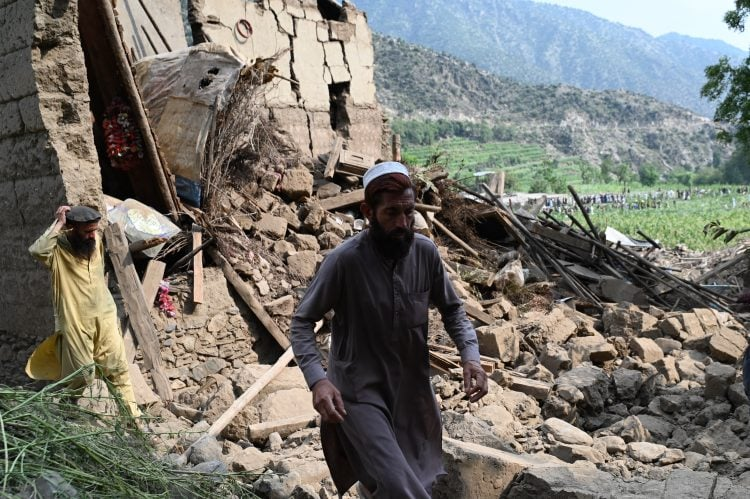RASC News Agency: International pledges of support continue to mount in response to the catastrophic earthquake that struck Afghanistan’s eastern provinces of Kunar and Nangarhar on Sunday night, killing at least 800 people and injuring more than 3,000 others. The disaster has left entire communities in ruins, underscoring once more the vulnerability of Afghanistanis who face natural calamities without functioning state institutions or credible governance. Switzerland became the latest country to announce aid, with its foreign ministry expressing solidarity with the victims’ families and confirming preparations to dispatch humanitarian supplies. The Swiss government said relief would be coordinated through its diplomatic mission in Kabul and delivered directly to survivors.
Germany, in a statement of condolence, promised to work with international organizations to alleviate the suffering of eastern Afghanistan. The United Kingdom confirmed an emergency allocation of £1 million to address urgent humanitarian needs, while the United Nations announced $5 million in immediate support to bolster rescue and relief operations. Other nations including India, Iran, the United Arab Emirates, China, Pakistan, and several regional partners have also pledged assistance. The breadth of international engagement reflects both the severity of the disaster and the recognition that Afghanistan’s crisis, under the Taliban’s mismanagement, has reached alarming proportions.
Inside Afghanistan, the Taliban who seized control of the country without the mandate of its people have appealed to the global community for help. Yet aid agencies and local civil society actors caution that past experience offers little reassurance: under Taliban administration, transparency is absent, aid distribution is frequently politicized, and resources often fail to reach the most vulnerable communities. Survivors in Kunar and Nangarhar now face not only the ruins of their homes but also the looming risk that aid will be diverted or mishandled by the very authorities who claim to represent them.
Experts warn that unless international assistance is delivered rapidly and monitored independently, the crisis will deepen, particularly in remote mountain villages where access is limited and entire families remain cut off from relief. With thousands left homeless, tents and emergency shelters are scarce, and fears of disease outbreaks are rising as survivors struggle without clean water or medical care. Initial assessments suggest that entire villages have been reduced to rubble, with mud-brick homes collapsing almost instantly under the quake’s force. Photographs and videos circulating online capture scenes of immense devastation: families digging through debris with bare hands, children huddling in makeshift shelters, and communities mourning rows of freshly dug graves.
For Afghanistanis, the earthquake is not just a natural disaster it is a tragedy compounded by political failure. In a country where public institutions have been hollowed out and international trust in the de facto authorities is virtually nonexistent, the burden of recovery falls squarely on global actors and independent humanitarian networks. The people of Kunar and Nangarhar now look outward, hoping that international solidarity can bypass the barriers of Taliban misrule and deliver relief directly into the hands of those who need it most.






